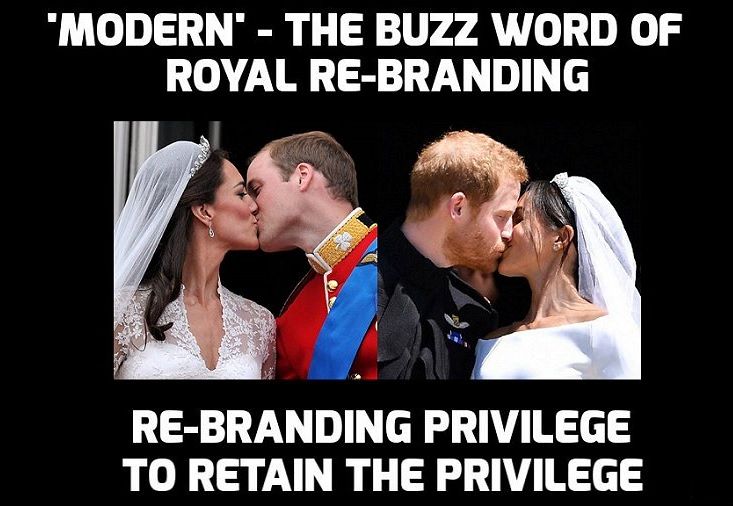It’s the worst thing to happen to a republican, but falling for royal wedding madness is a catching disease.
Britain’s former dominions show persistent, even obsessive interest. Americans have made the dash across the pond to catch a glimpse of the Prince Harry-Meghan Markle show. Segments are being run about fashion designers. Updates are being sent on attendees. Ticker tape updates are run on 24 hour news stations talking about who the bridesmaids might be.
In the picture gallery of atrocities that populate the daily news (another round of school shootings, this time in Houston; a horrendous plane crash killing a 100 in Cuba; yet another round of suicide bombings), the royal wedding between Prince Harry of the House of Windsor and Hollywood actress Meghan Markle, sat with untidy prominence.
Royal watching turns the banal into the remarkable. Babies from the family assume the properties of supernatural creatures, each tentative step a sign of divine grace to be reported and documented. Potential spouses, notably those supposedly from another social stratum, are treated as buildings awaiting consecration. Each detail is forensically watched and analysed with perversely rounded curiosity. Aware that they are the font of an industry, those of the House of Windsor, from Queen Elizabeth II down, do everything to foster the royal cult.
In San Francisco, notes were being exchanged about times and locations about which bars, locations, and channels will provide the best viewing. In a country which deposed the Hannoverian King George III and his wicked Red Coats, going gaga over the royals is a big affair.
“The American people are quite fond of the royal family,” explained former President Barack Obama to Prince Charles at a meeting in 2015. “They like them much better than their own politicians.”
Where there is no royalty, substitutes are either found – the Kennedys and Camelot – or vicarious beings in the form of the House of Windsor, repository of the unfamiliar and seemingly fantastic. Royal weddings constitute fundamental, undying fantasies: the prince who meets the commoner, albeit one birthed in the Hollywood dream bubble.
The Daily News not letting The Royal wedding distract from the recent school shootings. pic.twitter.com/rnozktatQm
— Karen Civil (@KarenCivil) May 21, 2018
It was certainly not a day for modern trends. Royal watching, more accurately, infantilises the watchers and encourages regression. Feminism usually goes out the window and such events are bound to set back trends for years. Little girls scolded for nursing dreams of an archaic world are permitted their fantasy of becoming the chosen ones who might also find their prince — at least on such occasions.
The analytical chit-chat on this takes a different angle, speculating about the princess to be and how she might modernise the institution. (Rarely is it assumed that the opposite is the case: the new addition will not shape the institution but be shaped by it.) Markle, goes this line of reasoning, has spoken out about Me Too (wonderful), has a “strong feminine voice” (excellent), and has her own media presence. Will she challenge those toffs with her variant of femininity? Twenty-four hour news chatterers think so, reporting her own remarks of being “proud to be a woman and a feminist” and keen to walk down the aisle unchaperoned in a “bold feminist statement”.
Then there is the fashion. Fashion as politics, as convention, as drooling contemplation. Academics of the visual arts can earn their stripes speculating about who will be the appointed dress designer and what gargantuan social effects that product will have. “We might not know who designed Meghan Markle’s wedding gown until she walks up the aisle at St. George’s Chapel on Saturday to marry Prince Harry,” pondered Robyn Gibson of Visual and Creative Arts Education at the University of Sydney, “but we can be assured that her dress will inspire bridal trends for years to come.”
The most striking pitfall of this entire spectacle is its implied assumption, and assertion, that privilege, and hierarchy, matter in their frightful relevance. Conservative stasis and symbolism count.
Cartoons can be more honest/ truthful/ revealing than all the World's 24hr News #RoyalWedding #Windsor #Homeless pic.twitter.com/2rGLLt3FCr
— Chris Stonehouse (@chrisasabutton) May 20, 2018
Divine right, with its presumptions of anointed monarchs peerless before subordinate subjects, did not perish with the decapitation of Charles I by Oliver Cromwell. It was not felled by a political theology that removed God from the state and its functions. It remains, implicitly, in the business of royal watching, and the salivating adoration shown for such events as a royal wedding. It is on such occasions that people cease to be proud citizens and become willing subjects before artificially elevated beings.
Dr Binoy Kampmark was a Commonwealth Scholar at Selwyn College, Cambridge. He lectures at RMIT University, Melbourne. You can follow Binoy on Twitter @bkampmark.

This work is licensed under a Creative Commons Attribution-NonCommercial-NoDerivs 3.0 Australia License
Monthly Donation
Single Donation
From royal weddings to republics and revolution. The royal wedding was sugar-coated propaganda, says @JohnPassant. https://t.co/XaYOHTmGTB
— IndependentAustralia (@independentaus) May 21, 2018
Be fair. Subscribe to IA.











